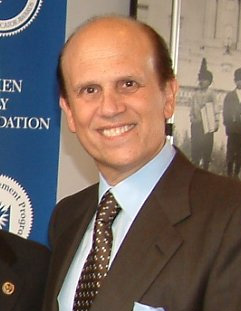“I am not disposed to complain that I have planted and others have gathered the fruits.”
—Charles Goodyear, American inventor, born December 29, 1800
 On reflection, it’s clear that what’s at issue between the study participants is not really gender, although this sounds like the mordant joke about male error and female judgment (“If a man is alone in the forest with no woman to hear him, is he still wrong?”). It’s something more fundamental: power.
On reflection, it’s clear that what’s at issue between the study participants is not really gender, although this sounds like the mordant joke about male error and female judgment (“If a man is alone in the forest with no woman to hear him, is he still wrong?”). It’s something more fundamental: power.
Couple of things:
- Situations where one side is objectively correct about something repugnant to the other side? Refusal to accept the theory of evolution. The age of the earth. Uselessness of vitamin supplements. The errors of “scientific” racism. Although the correct view may be considered settled, the wrong one continues to be widely held and angrily expressed.
- Nothing can ever be settled definitively except by killing one or more participants in a disagreement. Not a winning strategy for enforcing one’s views, right? Thomas Kuhn cannily observed in The Structure of Scientific Revolutions that paradigm shifts in science finally succeed because of generational change, not by convincing everyone.
- Normally the Wrongs have significant ability to resist accepting what’s Right. That’s why the study had to be terminated early. By the rules of the experiment, the guy had to agree to everything. This isn’t what happens in the wild. There’s always brokerage or negotiation. Failing a satisfactory compromise, we find divorce in marriage, secession in nations, and/or violence.
Very interesting that the authors of the study couldn’t find any “similar articles.” Power is a dangerous subject.
My new favorite restaurant in Holyoke: El Rincón Boricua, 216 Lyman Street. Open 7:00AM to 6:00PM. If you order a medium platter of pernil with a side of rice with peas, you’ll have enough for two people to overeat (I had to skip dinner last night after having lunch there yesterday). I cannot imagine what a large platter must be like. Try it. Delicious food and friendly service.
Happy New Year! (I guess Andrew Johnson did not count spelling among his many accomplishments.)
Reading
The High Cost of Always Being Right
“This might be the first study to systematically assess whether it is better to be right than happy; a Medline search in May 2013 found no similar articles. Our null hypothesis was that it is better to be right than happy.
“The intervention was for the male to agree with his wife’s every opinion and request without complaint. Even if he believed the female participant was wrong, the male was to bow and scrape…. The data safety monitoring committee stopped the study because of severe adverse outcomes after 12 days. By then the male participant found the female participant to be increasingly critical of everything he did. The situation had become intolerable by day 12. He sat on the end of their bed, made her a cup of tea, and said as much; explained the trial and then contacted the Data Safety Monitoring committee who terminated the trial immediately…. It seems that being right, however, is a cause of happiness, and agreeing with what one disagrees with is a cause of unhappiness.”
Being right or being happy: pilot study
The Last Word
“It’s a damn poor mind that can only think of one way to spell a word.”
—Andrew Johnson, American president, born December 29, 1808

 “What we do today, and brilliantly, is model the entire railroad: We actually fill out the paper forms and “operate” the railroad more or less prototypically, even — here we find class again — modeling (reproducing) the social relations that make the General Code of Operating Rules come alive (leaving out the Jay Goulds and Jim Fisks, of course). And we model the landscape (the “scenery”) infinitely better today than we did forty years ago, although we model the contours of the land by carving pink slabs of (petroleum-based) styrofoam, spraying electrostatic (petroleum-based) model grasses, gluing down the track with caulking guns like Martha Stewart, instead of using metal spikes for pity’s sake….”
“What we do today, and brilliantly, is model the entire railroad: We actually fill out the paper forms and “operate” the railroad more or less prototypically, even — here we find class again — modeling (reproducing) the social relations that make the General Code of Operating Rules come alive (leaving out the Jay Goulds and Jim Fisks, of course). And we model the landscape (the “scenery”) infinitely better today than we did forty years ago, although we model the contours of the land by carving pink slabs of (petroleum-based) styrofoam, spraying electrostatic (petroleum-based) model grasses, gluing down the track with caulking guns like Martha Stewart, instead of using metal spikes for pity’s sake….” A retrospective look at the transition from the automobile-dominated world of the early 21st century to the mostly carless world that came later. Cars really were right smack in the middle of everything back in the day, weren’t they?
A retrospective look at the transition from the automobile-dominated world of the early 21st century to the mostly carless world that came later. Cars really were right smack in the middle of everything back in the day, weren’t they? “Workers no longer “go” to work 6 days a week. Workers got Saturday off in the mid–20th Century. Getting every-other Friday off (the 5/4 schedule) became standard by 2015, establishing the 3-day weekend every other week as the norm. By 2020, this was every weekend, as people moved to a 9 hour day, 4 days per week at the office, and the other 4 hours were “at home” work – checking email on the long weekend, erasing once strict separation of home and work. By 2025 taking every-other Monday off (the 4/3 schedule) was established in most large employers. Today we are seeing half-days on Wednesdays for many office workers, with only Tuesdays, Wednesday, and Thursdays as interactive collaboration days. The “flipped” office, where people were expected to do “work” at home on their own computers, and only show up for meetings is now standard.”
“Workers no longer “go” to work 6 days a week. Workers got Saturday off in the mid–20th Century. Getting every-other Friday off (the 5/4 schedule) became standard by 2015, establishing the 3-day weekend every other week as the norm. By 2020, this was every weekend, as people moved to a 9 hour day, 4 days per week at the office, and the other 4 hours were “at home” work – checking email on the long weekend, erasing once strict separation of home and work. By 2025 taking every-other Monday off (the 4/3 schedule) was established in most large employers. Today we are seeing half-days on Wednesdays for many office workers, with only Tuesdays, Wednesday, and Thursdays as interactive collaboration days. The “flipped” office, where people were expected to do “work” at home on their own computers, and only show up for meetings is now standard.” Read this piece about how the
Read this piece about how the 
 William Lyon Mackenzie King’s crack (what a great name!) about his country is oddly appropriate for this week when
William Lyon Mackenzie King’s crack (what a great name!) about his country is oddly appropriate for this week when  I did not know that
I did not know that 
 Jane Austen and John Selden remind us to take the world as it is, not as we would like it to be. People can be reliably assumed to not be angels; governments and businesses can be expected to be chaotic and to demand improvisation and adaptability. The trick is to “juggle” realism, charity, and humor.
Jane Austen and John Selden remind us to take the world as it is, not as we would like it to be. People can be reliably assumed to not be angels; governments and businesses can be expected to be chaotic and to demand improvisation and adaptability. The trick is to “juggle” realism, charity, and humor. “I remember very distinctly my parents insisting on the importance of being honest, of never telling lies, of always being dependable. What I don’t recall is their instilling in me the importance of a nice smile. Maybe they did and I just forgot, but that seems unlikely since although I turned out to be the soul of honesty and reliability, I ended up greeting the world with the face of an undertaker arriving – precisely on time – at the home of the bereaved. So was this, in order of specificity: just a familial oversight? A generational thing – I mean, are kids now taught to smile in the way that we learned our multiplication tables? Or is a paucity of smiles a persistent feature of British life?”
“I remember very distinctly my parents insisting on the importance of being honest, of never telling lies, of always being dependable. What I don’t recall is their instilling in me the importance of a nice smile. Maybe they did and I just forgot, but that seems unlikely since although I turned out to be the soul of honesty and reliability, I ended up greeting the world with the face of an undertaker arriving – precisely on time – at the home of the bereaved. So was this, in order of specificity: just a familial oversight? A generational thing – I mean, are kids now taught to smile in the way that we learned our multiplication tables? Or is a paucity of smiles a persistent feature of British life?” Having spent much of the last four or five years working on committees, I can assure you that a good deal of speechmaking gets done. I sometimes wonder if the symbolic point of the chairperson’s gavel is to remind committee members that the chair can make herself thoroughly unpleasant if necessary, and has the weaponry at hand.
Having spent much of the last four or five years working on committees, I can assure you that a good deal of speechmaking gets done. I sometimes wonder if the symbolic point of the chairperson’s gavel is to remind committee members that the chair can make herself thoroughly unpleasant if necessary, and has the weaponry at hand.

 What should InCommN do about Don’t Eat Lunch Alone? We schedule it twice a month in Easthampton, Greenfield, and Northampton. We get pretty thin turnouts. Maybe the DELA idea has gotten stale and we need to try something else. Any suggestions for what you would like to see (if anything) would be welcome. All of us are pretty busy and it’s often not possible for any of us to show up to host the various lunches. We don’t like doing that.
What should InCommN do about Don’t Eat Lunch Alone? We schedule it twice a month in Easthampton, Greenfield, and Northampton. We get pretty thin turnouts. Maybe the DELA idea has gotten stale and we need to try something else. Any suggestions for what you would like to see (if anything) would be welcome. All of us are pretty busy and it’s often not possible for any of us to show up to host the various lunches. We don’t like doing that. The best part of the piece about the likelihood of birds
The best part of the piece about the likelihood of birds  “Birds are going to hate these drones…[B]irds will be chasing them. Unseen to us, the skies are checkered with fiercely defended bird territories. Open-country raptors—hawks, eagles, kites, harriers, etc.—don’t take kindly to interlopers on their hunting grounds, and frequently chase, dive-bomb, and take talons to intruders. The confrontations can be even more violent during nesting season when vulnerable chicks are potential prey.”
“Birds are going to hate these drones…[B]irds will be chasing them. Unseen to us, the skies are checkered with fiercely defended bird territories. Open-country raptors—hawks, eagles, kites, harriers, etc.—don’t take kindly to interlopers on their hunting grounds, and frequently chase, dive-bomb, and take talons to intruders. The confrontations can be even more violent during nesting season when vulnerable chicks are potential prey.”